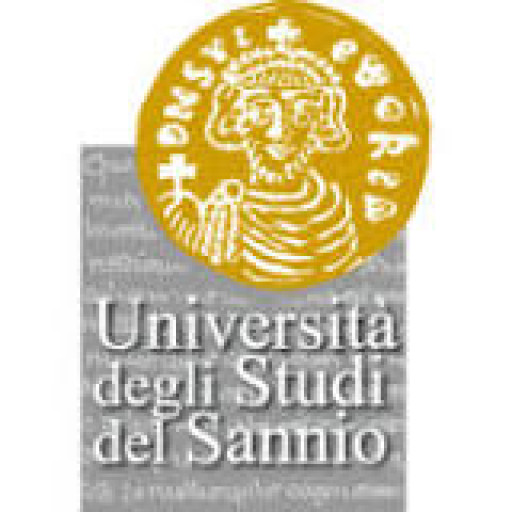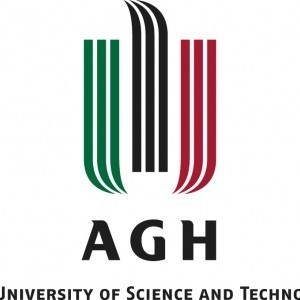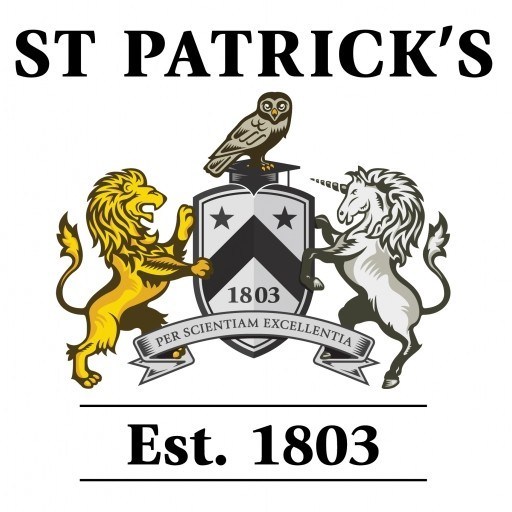Photos of university / #dtudk
The Master's degree program in Telecommunication at the Technical University of Denmark offers a comprehensive and advanced education in the field of modern telecommunications, encompassing both theoretical foundations and practical applications. Designed for students who aspire to be at the forefront of innovations in communication technologies, this program provides a deep understanding of how data, voice, and multimedia information are transmitted across various networks and systems. Throughout the program, students explore a wide range of topics, including wireless and mobile communication, optical communication, network architecture, signal processing, and cybersecurity. The curriculum emphasizes interdisciplinary skills, combining principles from electrical engineering, computer science, and information technology to prepare graduates for complex challenges in the telecommunications industry.
Students will benefit from state-of-the-art laboratories and research facilities, allowing hands-on experience with cutting-edge technologies such as 5G networks, Internet of Things (IoT), and software-defined networking. The program also includes courses on the regulatory and economic aspects of telecommunications, equipping students with a holistic understanding of the sector. Collaboration with industry partners and participation in research projects are integral parts of the learning experience, fostering innovation and practical problem-solving skills. Graduates of this program are well-prepared for careers in telecommunications companies, research institutes, and technology-driven enterprises, or to pursue doctoral studies. With a strong emphasis on sustainability and ethical considerations, the program aims to develop professionals capable of contributing to the development of resilient, efficient, and innovative communication infrastructures for the future.
Programme provision
To obtain the Master of Science Degree in Telecommunication, the student must fulfil the following requirements:
- Have passed General Competence Courses adding up to at least 30 points
- Have passed Technological Specialization Courses adding up to at least 30 points
- Have performed a Master Thesis of at least 30 points within the field of the general program
- Have passed a sufficient number of Elective Courses to bring the total number of points of the entire study up to 120 points
Only applicants holding either a Bachelor of Science in Engineering, a Bachelor in Engineering or a Bachelor of Natural Science degree can be admitted to a Master of Science in Engineering programme. From September 2017 the bachelor degree must be less than 10 years old.
The individual MSc Eng programme states in detail which bachelor programmes qualify and whether applicants have to complete supplementary educational activities.
Requirements for supplementary educational activities can equate to up to 30 ECTS credits and are specified in the form of a list of courses under the individual MSc Eng programmes.
The specific requirements must be met before graduating from the bachelor programme or in connection with conditional admission to a particular MSc Eng programme. The courses must be passed prior to the commencement of studies within one year from the conditional admission.
Supplementary educational activities in connection with conditional admission to an MSc Eng programme do not form part of the MSc Eng programme, and partial tuition fees are charged. If the supplementary courses have not been passed within the deadlines specified, the conditional admission to the programme is withdrawn.
The Master of Science in Engineering programmes are offered in English. Therefore applicants must demonstrate proficiency in English (B-level, IELTS, TOEFL- or Pearson test).
Academic requirements for this programme
Students holding a BSc Eng in Electronics or Computer Science have access to be admitted to the MSc Eng in Telecommunication provided that their programmes have included elements of communication technologies. The DTU BSc Eng programms listed below serve as a guideline.
Applicants must demonstrate skills in a number of the following subjects
- Mathematics (linear algebra, analysis, diferential equations, fourier transforms, probability theory)
- Linear systems and circuit theory (time continuous and time discrete systems)
- Analog and digital design (emphasis on digital design)
- Software engineering including programming (C or equivalent)
- Fundamental classical electromagnetics in simple media
- Basic telecommunication, data communication, or communication theory
The merits and qualifications of the applicants will be considered individually, based on the submitted material. The level of the qualifications compared to other applicants will also be of importance.
Notice that the MSc Eng programme is very broad such that each prerequisite is not of equal use in all study lines. This is described further with the study lines and the descriptions for the individual courses.
The following BSc Eng programmes at DTU entitle students to admission to the MSc Eng programme in Telecommunication:
- Electrical Engineering
- Network Technology and IT
- Physics and Nanotechnology
- Software Technology
Bachelors in Software Engineering from The Faraoe Islands are admitted directly.
Students from the following Bachelor of Engineering programmes at DTU:
- IT Electronics
- Electrical Engineering
- Electronics and Computer Science
have access to admission subject to having completed 10 ECTS credits from the list below.
B Eng in IT or in Electrical Engineering from other Danish universities are admitted if they fulfill the requirements above or similar requirements.
The academic requirements may be fulfilled differently. This will be evaluated on a case-by-case basis by the head of study.
Students who wish to be admitted to the MSc Eng programme in Telecommunication are recommended to contact the head of study for guidance in their choice of courses.
| 02131 | Embedded systems | 10 | point | E5 (Wed 8-17) |
| 02158 | Concurrent Programming | 5 | point | E1B (Thurs 13-17) |
| 02325 | Data Communication | 5 | point | F4A (Tues 13-17) |
| 02342 | Distributed Systems | 5 | point | F3A (Tues 8-12) |
| 10303 | Condensed Matter Physics and Nanoscale Materials Physics | 10 | point | E4 (Tues 13-17, Fri 8-12), F4 (Tues 13-17, Fri 8-12) |
| 31035 | Engineering Electromagnetics | 10 | point | E1A (Mon 8-12) and E5A (Wed 8-12) |
| 31038 | Linear Systems, Digital Signal Processing, and Signal Processors | 15 | point | E2 (Mon 13-17, Thurs 8-12) and January |
| 31400 | Electromagnetics | 10 | point | E1 (Mon 8-12, Thurs 13-17) |
| 31405 | Wireless Communications | 5 | point | F1A (Mon 8-12) |
| 34020 | Optics and Photonics | 5 | point | F1B (Thurs 13-17) |
| 34120 | Electromagnetism for Communication | 5 | point | F2A (Mon 13-17) |
| 34225 | Telecommunication Summer University | 5 | point | Summer School |
| 34310 | Introduction to networks and digital communication | 10 | point | E2B (Thurs 8-12) and F4B (Fri 8-12) |
| 34311 | Introduction to Networks for Telecommunication and Data Communication | 5 | point | E2B (Thurs 8-12), F3A (Tues 8-12) |
| 34330 | Introduction to Mobile Communication | 10 | point | E3 (Tues 8-12, Fri 13-17) |
Financing of the Telecommunications Engineering program at the Technical University of Denmark is primarily supported through a combination of national and international funding sources. Students have access to various scholarship programs aimed at promoting international mobility and academic excellence. These include Danish government scholarships, Erasmus+ funding for students participating in exchange semesters across European universities, and specific scholarships offered by the university for outstanding students. Domestic students often benefit from subsidized tuition fees, as the Danish higher education system emphasizes accessible education for its residents. International students may be required to pay tuition fees; however, financial aid options, including partial scholarships and grants, are available based on academic merit and financial need.
The university collaborates with industry partners, which sometimes offer sponsorships or funding opportunities for students pursuing careers aligned with their corporate interests, especially in telecommunications and related fields. Students are also encouraged to seek external funding sources such as national research councils and European Union programs supporting engineering studies. Moreover, students might have the possibility of part-time work on or near campus, which can help offset living expenses. The cost of living in Denmark is relatively high, and students are advised to budget adequately for accommodation, transportation, and daily expenses during their studies.
The university facilitates access to student loans and financial counseling for prospective and current students. Additionally, several loan schemes are available for international students through Danish financial institutions, contingent upon eligibility criteria. Overall, the financing structure for the Telecommunications Engineering program is designed to ensure that qualified students can access high-quality education without insurmountable financial barriers, leveraging a comprehensive range of financial support systems, scholarships, and funding opportunities provided by the university, government, and external organizations.
The Master’s degree program in Telecommunication at the Technical University of Denmark (DTU) offers a comprehensive curriculum designed to prepare students for advanced careers in the field of telecommunications and communication systems. This program emphasizes cutting-edge technologies, innovative problem-solving skills, and a strong foundation in both theoretical and practical aspects of telecommunication networks, signal processing, and wireless communication. Students will explore topics such as network architecture, protocols, data transmission, optical communication, mobile and broadband networks, network security, and Internet of Things (IoT) applications. The program is structured to combine lectures, laboratory work, project collaborations with industry partners, and opportunities for international study or internships. Graduates of this program will be equipped to design, analyze, and optimize telecommunication systems, contributing to the development of next-generation communication infrastructure. The program also fosters skills in research methods, enabling students to pursue doctoral studies or advanced research roles. DTU’s strong industry connections provide students with relevant practical experience and networking opportunities, enhancing their employability in the rapidly evolving telecommunications sector. The language of instruction is primarily English, accommodating international students and preparing graduates for careers worldwide. Admission typically requires a relevant engineering or science bachelor’s degree and proficiency in English. The program duration is usually two years, culminating in a Master's thesis that focuses on a specialized area within telecommunications. This education aims to meet the rising global demand for skilled professionals who can address challenges such as network security, data privacy, and the integration of new technologies in telecommunications.







